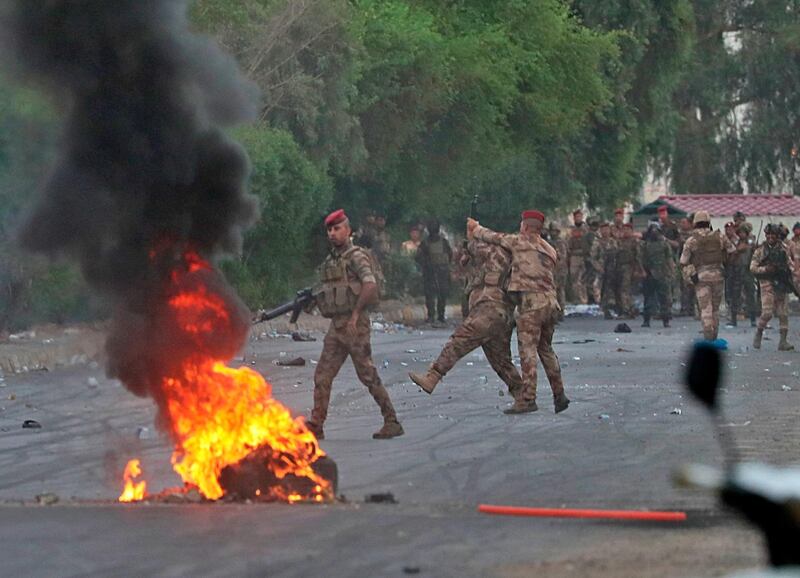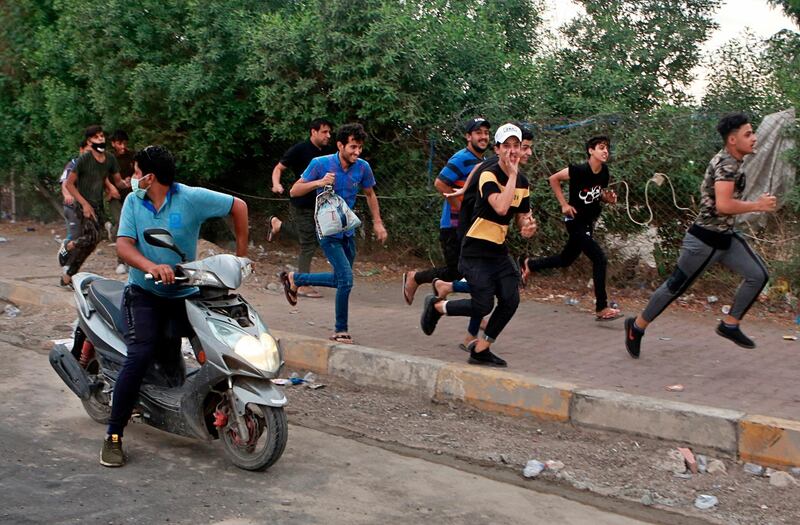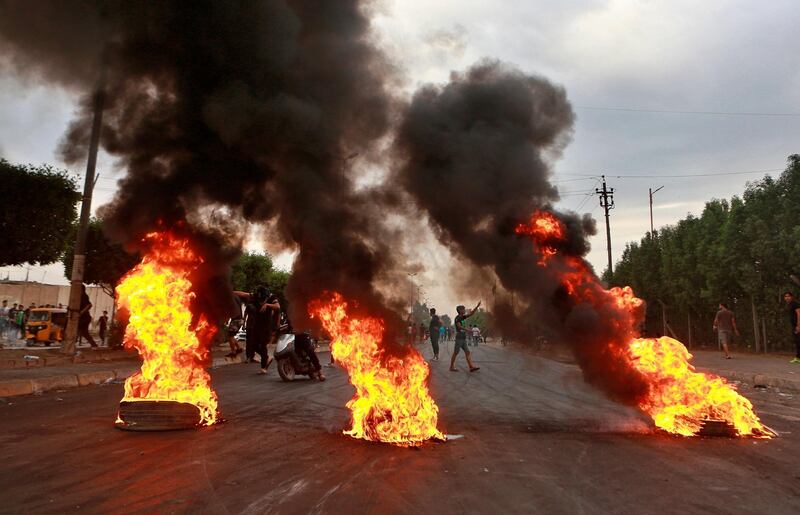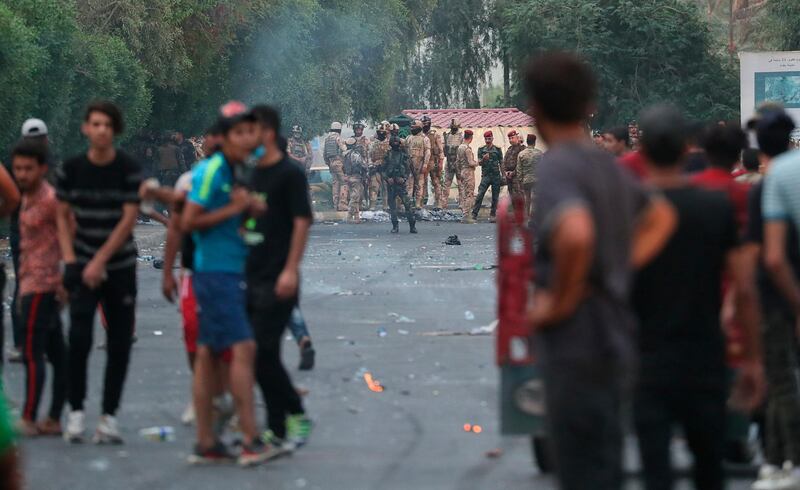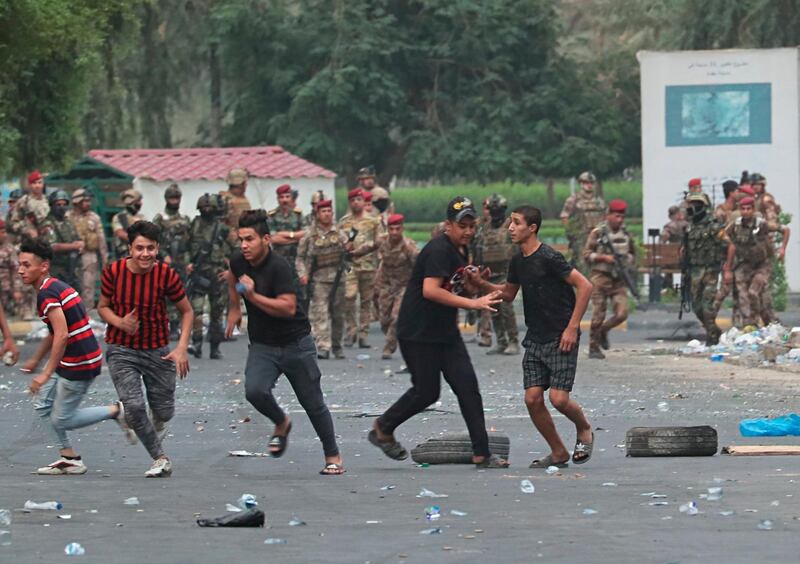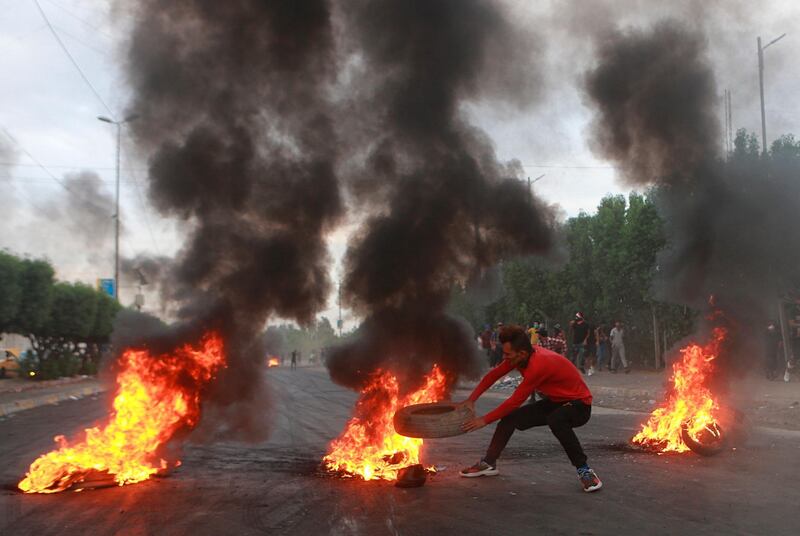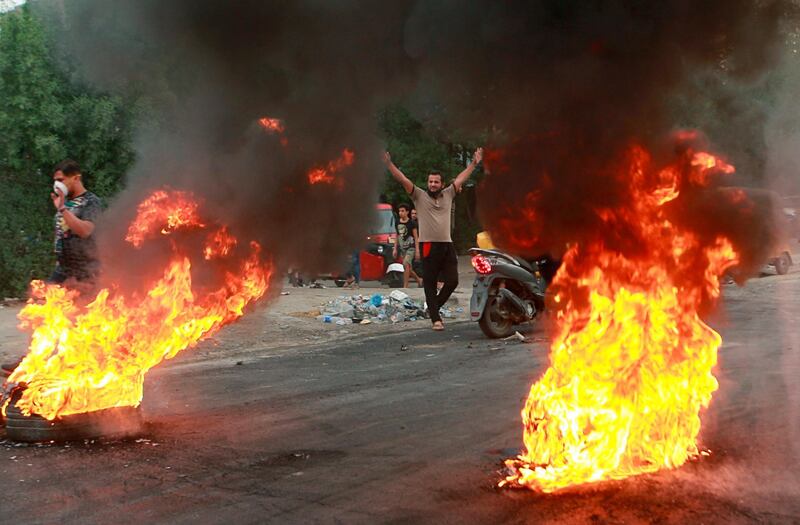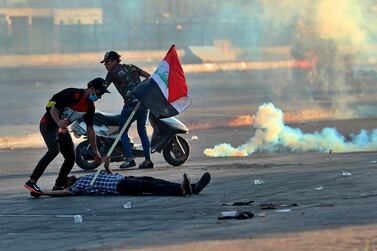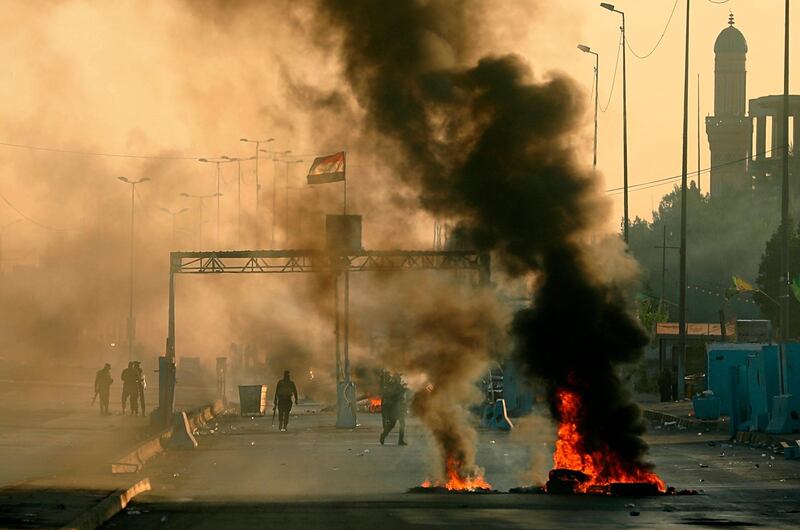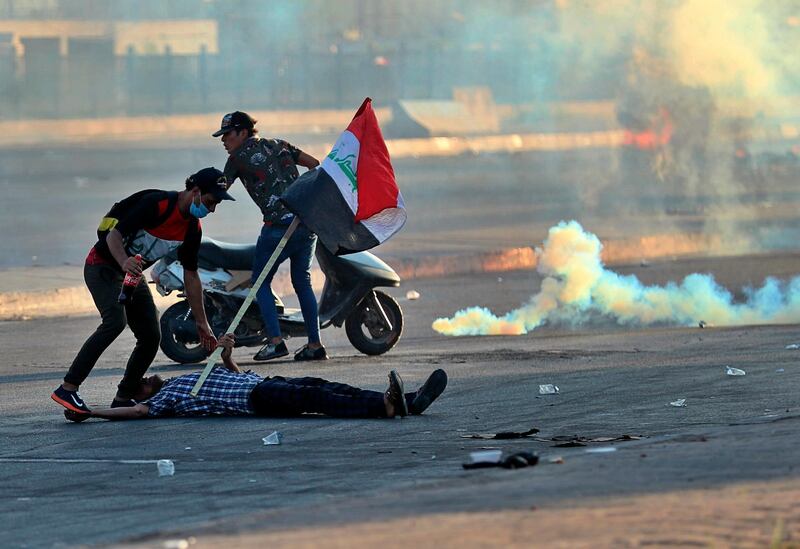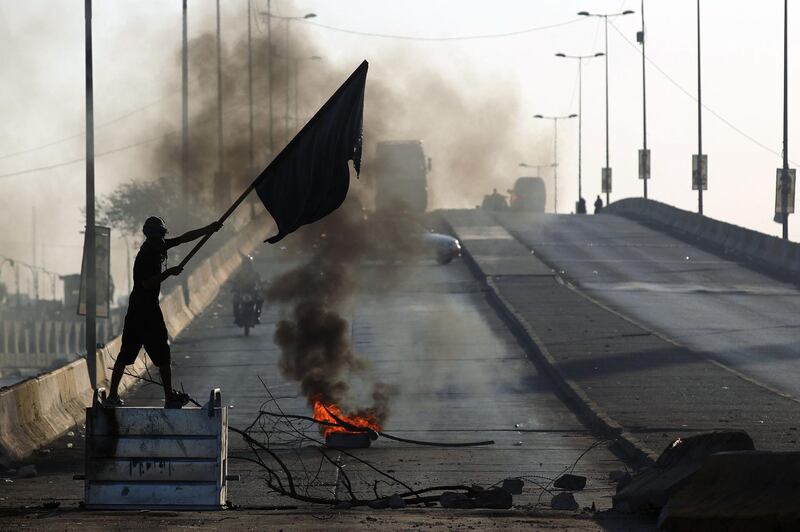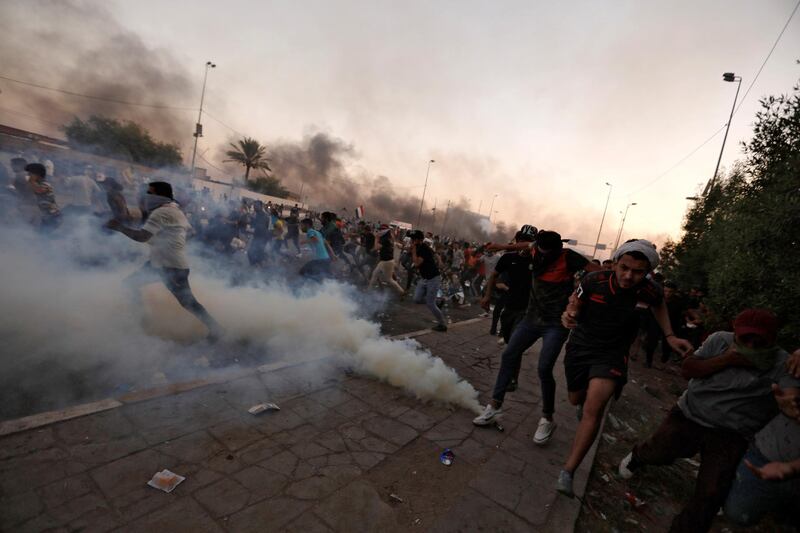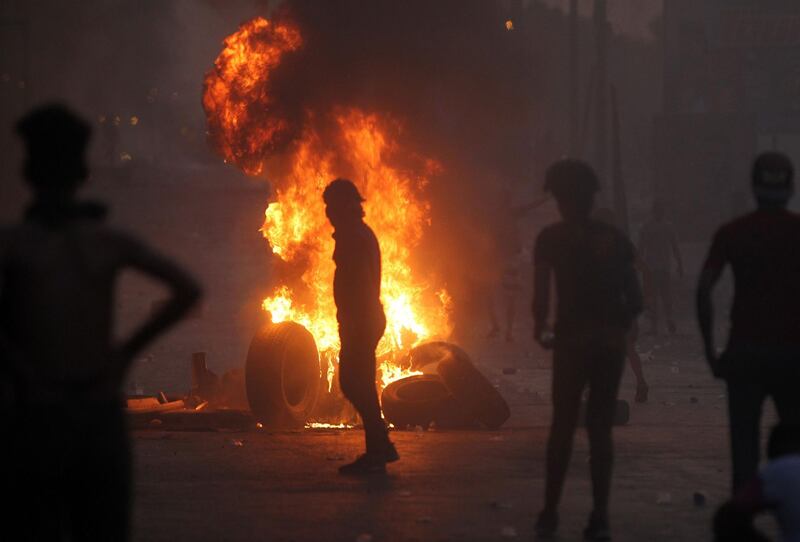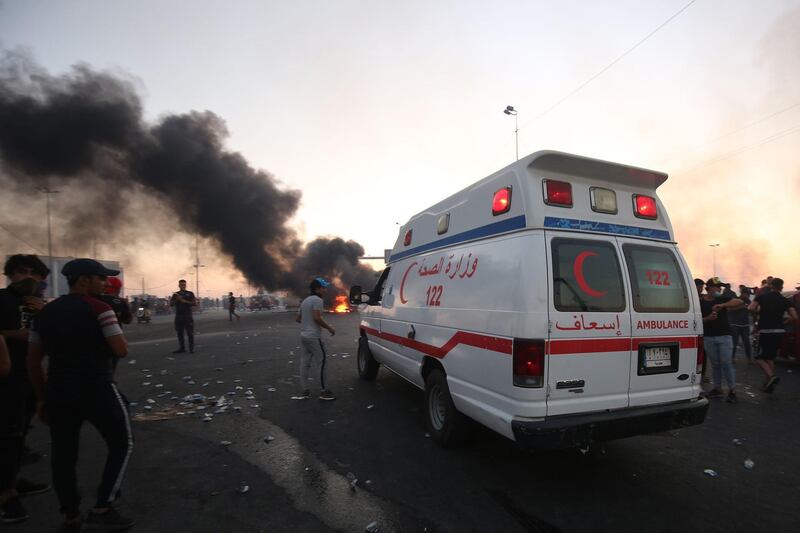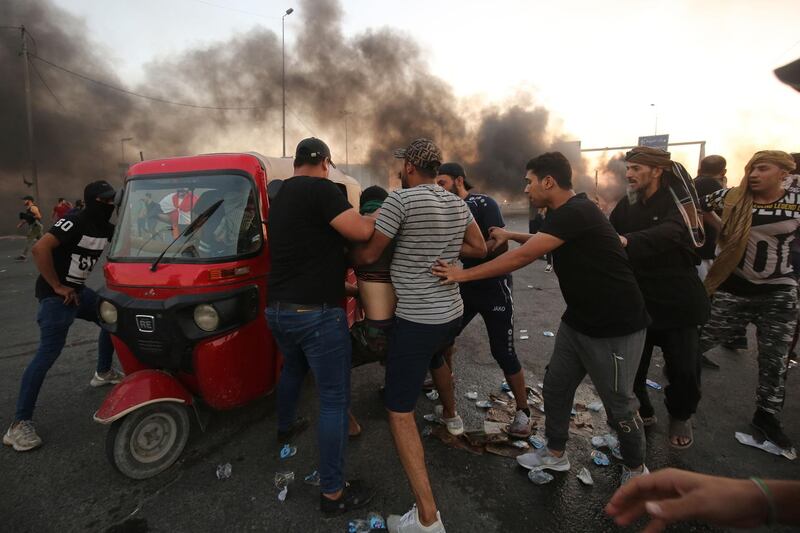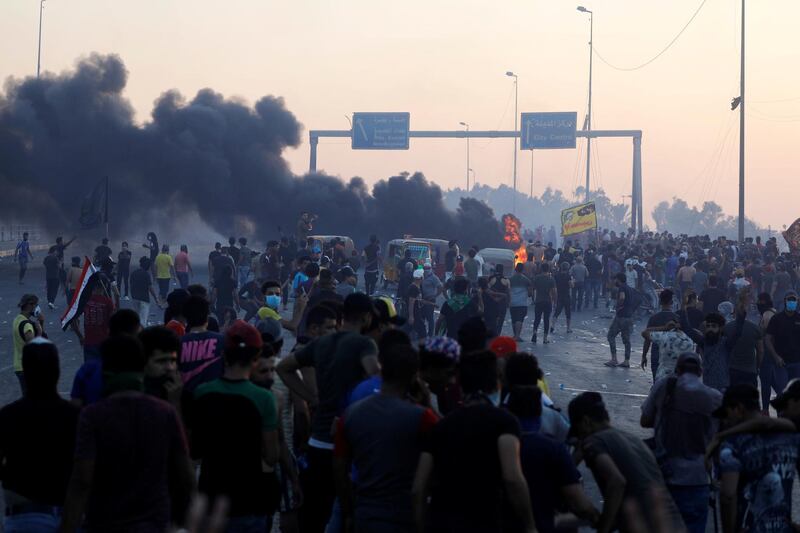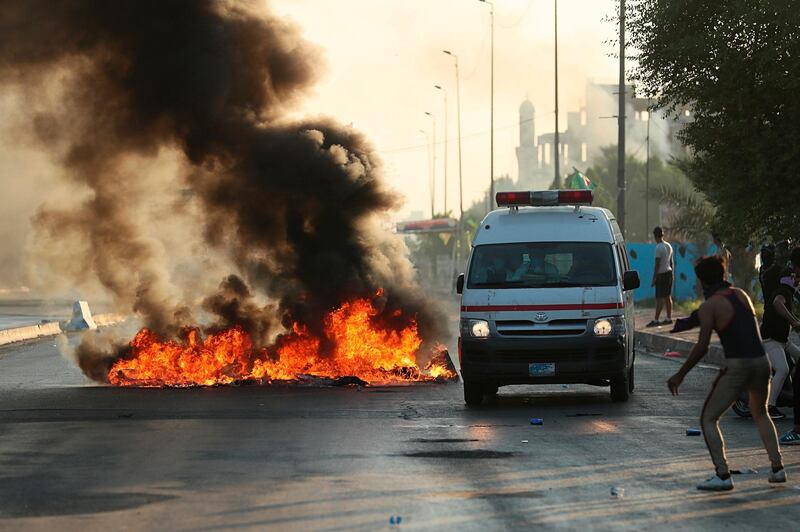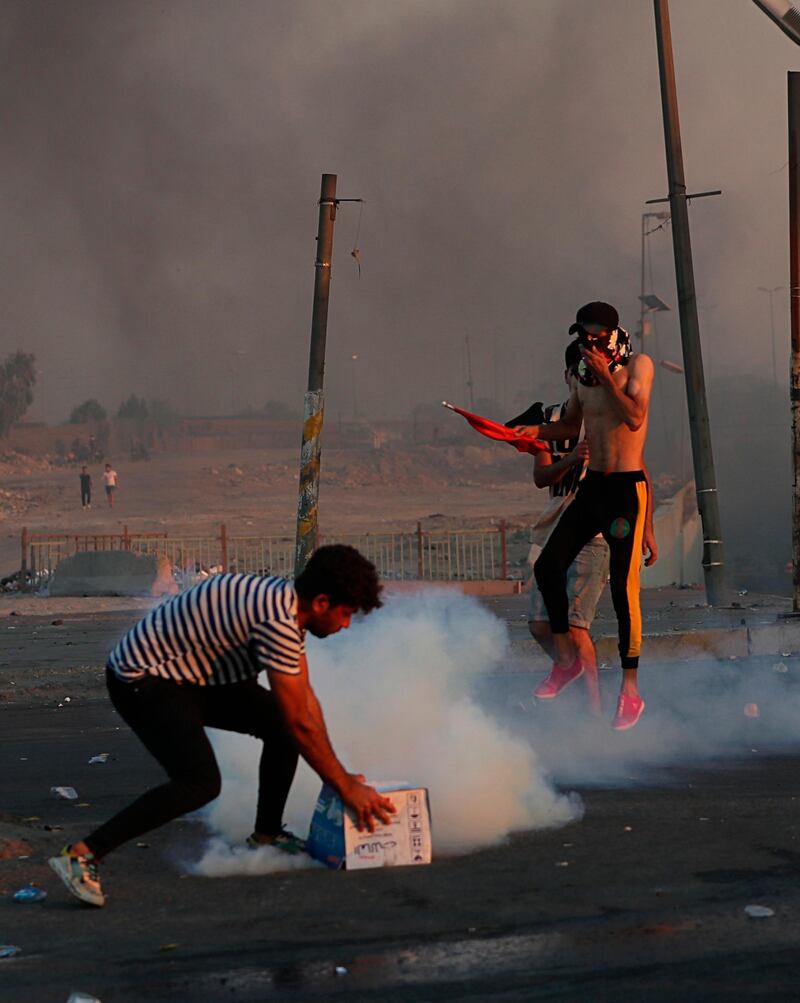Iraq's military admitted on Monday that “excessive force” was used against anti-government protesters on Sunday night, killing dozens of people.
Iraq has been gripped with violent protests that killed more 100 people with over 6,000 injured since clashes erupted between security forces and protesters last week.
“Excessive force outside the rules of engagement was used and we have begun to hold accountable those commanding officers who carried out these wrong acts," the military said.
Iraqi authorities accused "saboteurs" and unidentified snipers of hitting protesters.
State media reported that 15 people were killed during Sunday night's clashes in Sadr city.
Videos circulated on social media showed protesters filling streets littered with burning tyres as the sound of a volley of gunfire and possibly heavy weapons are heard in the background.
The admission was the first time security forces acknowledged using disproportionate measures since protests broke out.
Iraqi Prime Minister Adel Abdul Mahdi had insisted they were acting "within international standards" in dealing with demonstrations.
The uprising against the government began with a demand for jobs and a crackdown on corruption. Now demonstrators are calling for justice for those killed in the protests.
A series of political moves by the government sparked a nationwide outcry last week, particularly the demotion of popular commander, Lt Gen Abdulwahab Al Saadi.
Reasons for his demotion were never fully explained and some at the demonstrations were protesting over his removal.
Iraqis largely credit Lt Gen Al Saadi with leading the fight against ISIS.
Mr Abdul Mahdi on Monday ordered the withdrawal of the military from Sadr city, east of Baghdad.
Federal police will replace army units in the southern city due to the “excessive use of force”, the military said.
“All security forces must adhere to the rules of engagement to protect protesters and combat riots."
The violence over the past week deepened the political and economic crisis with which Iraq has grappled since the US invasion in 2003.
Mr Abdul Mahdi had a call with the US Secretary of State Mike Pompeo and discussed the protests that have gripped the this week.
"The prime minister reviewed developments in the security situation and the return to normal life after the curfew was lifted, and confirmed that security forces had resumed control and stability had been restored," his office said.
It said Baghdad had put forward a package of reforms and would continue to provide more to meet the demands of the protesters.
Iraq's National Security Adviser Falah Al Fayyadh pledged to fight corruption and open an investigation into the deaths of protesters.
"We will not allow anyone to meddle with the security of our people," Mr Al Fayyadh said.
He said he knew who was behind the violence against protesters and the investigation would "prove that".
Mr Al Fayyadh said his forces would support action against corrupt institutions but not "the fall of the regime", a phrase that has featured in protest chants in recent days.
"Those who wanted to defame Iraq will be punished," he said, adding that his forces were "ready for any government order".
Iran's supreme leader Ayatollah Ali Khamenei on Monday tweeted that "enemies" were trying to drive a wedge between Tehran and Baghdad.
"Iran and Iraq are two nations whose hearts and souls are tied together," Mr Khamenei said.
"Enemies seek to sow discord but they've failed and their conspiracy won't be effective."
Tehran urged its citizens planning to take part in a major pilgrimage in Iraq to delay their travel to the country.
In other developments, Russian Foreign Minister, Sergey Lavrov, arrived in Baghdad on Monday and met his Iraqi equivalent Mohamed Al Hakim.
Last month, Russian Foreign Ministry spokeswoman Maria Zakharova said the talks would focus on the situation in Iraq, Syria, Iran and the Palestinian territories.
